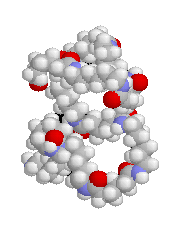Exploring the Varied Applications and Benefits of Polymers in Different Industries
Polymers, with their diverse series of properties and performances, have ended up being vital in numerous sectors, each gaining unique take advantage of their application. Polymers. From enhancing security and efficiency in the auto sector to transforming medical gadgets in the health care market, polymers play an essential function. Additionally, their green nature is modifying the landscape of sustainability practices. As we look into the depths of polymers in electronic devices, we discover sophisticated technologies, while their architectural honesty transforms the realm of building and infrastructure. The pervasive influence of polymers throughout industries is a testament to their versatility and adaptability, forming the future of plenty of markets.
Automotive Field Applications
Polymers play an essential role in improving the efficiency and toughness of various elements within the auto industry. These functional materials are extensively made use of in the manufacturing of various parts, ranging from indoor components to under-the-hood applications. One famous use polymers in the automotive market remains in the manufacturing of lightweight components. By replacing typical metal parts with polymer-based options, lorries can achieve improved fuel effectiveness without endangering on strength or safety.

Healthcare Industry Advantages
In different health care applications, the benefits of using polymers are extensively recognized for their varied variety of helpful buildings. Polymers play a crucial role in the healthcare industry due to their flexibility, biocompatibility, and cost-effectiveness. One of the primary advantages of polymers in medical care is their capacity to be customized to certain demands, such as versatility, longevity, and biodegradability, making them excellent for a large range of clinical applications.
Polymer-based materials are extensively made use of in clinical gadgets, such as catheters, implants, prosthetics, and medication delivery systems, as a result of their biocompatibility and ability to mimic all-natural tissues. These materials can lower the threat of allergies or rejections, boosting individual security and outcomes. Furthermore, polymers are lightweight, making them suitable for wearable clinical gadgets and guaranteeing patient convenience.
In addition, polymers allow the growth of ingenious therapy techniques, such as hydrogels for cells engineering and nanocomposites for targeted medication delivery. Their simplicity of handling and sterilization makes them essential for preserving high standards find out this here of health in medical care settings. On the whole, the diverse advantages of polymers contribute substantially to advancements in clinical technology and person care.
Ecological Benefits of Polymers

Additionally, polymers can add to power financial savings due to their lightweight nature. In markets such as transport, light-weight polymer products can help reduce fuel usage and greenhouse gas exhausts. Additionally, polymers can enable the advancement of energy-efficient items such as insulation products that boost energy conservation in structures.
Moreover, polymers play a crucial role in decreasing water pollution. For instance, the use of polymer-based filtering systems can efficiently eliminate contaminants and pollutants from wastewater, securing water sources and ecological communities. In general, the ecological benefits of polymers make them useful properties in advertising sustainability and environmentally friendly practices throughout different markets.
Polymers in Electronics and Technology
Taking into consideration the increasing need for ingenious and sustainable services in modern-day markets, the combination of advanced polymer modern technologies in the world of electronics and technology has emerged as a pivotal approach for driving effectiveness and performance. Polymers have revolutionized the electronic devices market by enabling the manufacturing of lighter, extra adaptable, and long lasting electronic devices. From smart devices to medical tools, polymers play a critical function in enhancing item layout and performance.
One considerable advantage of polymers in electronics is their shielding residential properties, which aid secure delicate go now electronic elements from ecological elements and electric interference. Furthermore, polymers are important in the growth of flexible screens, wearable modern technology, and printed electronic devices, offering unlimited opportunities for creating wise and interconnected tools.
Additionally, the usage of polymers in electronic product packaging has actually resulted in improvements in miniaturization and thermal administration, enhancing the total performance and dependability of digital systems. As modern technology remains to evolve, the adaptability and flexibility of polymers will unquestionably drive better technology in the electronics industry, shaping the future of innovation.
Function of Polymers in Building And Construction and Framework
Polymers provide many advantages in the building industry due to their convenience, longevity, and cost-effectiveness. One crucial function of polymers in building is their use in finishes and sealers, giving defense against environmental elements such as wetness, UV radiation, and deterioration.
Furthermore, polymers play a critical duty in sustainable building and construction techniques by allowing the development of energy-efficient frameworks. Shielding materials made from polymers aid manage interior temperatures, decreasing the need for home heating and cooling systems and ultimately lowering power intake. The use of polymer-based compounds in framework jobs such as bridges and roadways enhances their durability and lowers maintenance expenses. Overall, the consolidation of polymers in construction and facilities displays their significant influence on modern-day engineering methods.
Final Thought
To conclude, polymers play a crucial function in various markets such as automobile, health care, ecological, electronic devices, and building. Their functional homes make them beneficial in developing cutting-edge solutions and click products. From improving fuel effectiveness in cars to improving medical gadgets, polymers provide various advantages. Additionally, their effect on decreasing waste and promoting sustainability highlights their importance in modern applications. The widespread use polymers shows their considerable contribution to advancing technology and improving quality of life.